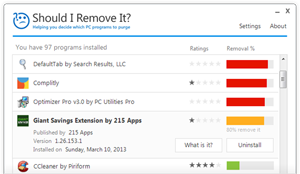Import table
advapi32.dll
RegCloseKey, RegOpenKeyA, RegSetKeySecurity, SetSecurityDescriptorDacl, InitializeSecurityDescriptor, RegOpenKeyExA, RegQueryValueExA
kernel32.dll
GetConsoleOutputCP, WriteConsoleA, SetStdHandle, GetLocaleInfoW, GetConsoleMode, GetConsoleCP, LCMapStringW, LCMapStringA, HeapSize, GetEnvironmentStringsW, WideCharToMultiByte, FreeEnvironmentStringsW, GetEnvironmentStrings, FreeEnvironmentStringsA, GetStartupInfoA, GetFileType, SetHandleCount, GetStringTypeW, GetStringTypeA, IsValidLocale, EnumSystemLocalesA, GetLocaleInfoA, GetUserDefaultLCID, WriteConsoleW, TlsFree, TlsSetValue, TlsAlloc, TlsGetValue, IsValidCodePage, GetACP, GetCPInfo, IsDebuggerPresent, SetUnhandledExceptionFilter, UnhandledExceptionFilter, TerminateProcess, GetModuleFileNameA, GetStdHandle, ExitProcess, VirtualAlloc, VirtualFree, HeapCreate, HeapDestroy, HeapReAlloc, RaiseException, RtlUnwind, GetProcessHeap, GetCommandLineA, GetCurrentThreadId, CreateThread, ResumeThread, ExitThread, InterlockedDecrement, InterlockedIncrement, HeapAlloc, HeapFree, CreateFileA, lstrcmpA, lstrlenA, LocalFree, SetLastError, FlushFileBuffers, WriteFile, GetCurrentProcess, GetWindowsDirectoryW, GetModuleFileNameW, SetFilePointer, GetOEMCP, GetCurrentDirectoryA, DeleteCriticalSection, LeaveCriticalSection, EnterCriticalSection, InitializeCriticalSection, GetFullPathNameA, QueryDosDeviceA, LoadLibraryA, MultiByteToWideChar, OpenMutexA, CreateFileMappingA, OpenFileMappingA, MapViewOfFile, lstrcmpiA, UnmapViewOfFile, ReleaseMutex, GetVersionExA, GetLogicalDrives, GetDriveTypeA, GlobalAlloc, GlobalLock, GlobalFree, GlobalUnlock, GetComputerNameA, WaitForMultipleObjects, CreateEventA, WaitForSingleObject, ResetEvent, SetEvent, CloseHandle, CreateMutexA, GetLastError, Sleep, GetTickCount, SetErrorMode, GetVersion, GetModuleHandleA, GetProcAddress, FreeLibrary, GetCurrentProcessId, LocalAlloc, CallNamedPipeA
mpr.dll
WNetGetUserA
netapi32.dll
Netbios
pscl3.dll
_PSCopyCharBuffer@8
pscore3.dll
_PSComClassIDFromProgID@8, _PSComCreateObject@16, _PSStrNCpyW@12, _PSResultFromNative@4, _PSStrStrW@8, _PSStrCatW@8, _PSFileOpen@16, _PSFileClose@4, _PSDirOpen@8, _PSDirCreate@8, _PSStrRChrW@8, _PSDirClose@4, _PSStrToUpperW@4, _PSGetDefaultCharEncoding@8, _PSStrLenA@4, _PSRegistrySetValue@24, _PSRegistryGetValue@24, _PSRegistryDeleteKey@8, _PSStrCmpW@8, _PSStrCpyW@8, _PSLToStrW@12, _PSLibClose@4, _PSAnsiToUnicode@12, _PSLibOpen@8, _PSGetUserName@8, _PSStrLenW@4, _PSGetHostName@8, _PSUnicodeToAnsi@12, _PSGateOpen@4, _PSGateClose@4, _PSGateWait@4, _PSLibGetSymbol@12, _PSStrICmpA@8, _PSMutexAcquire@4, _PSMutexRelease@4, _PSMutexDestroy@4, _PSGateDestroy@4, _PSMutexCreate@12, _PSGateCreate@12
user32.dll
MsgWaitForMultipleObjects, GetMessageA, KillTimer, SetTimer, DispatchMessageA
Export table
_DBUGetInfo@28
_DBUGetVersion@20
_DBUSetInfo@20
_DBUStop@4
_nlAddCacheEntry@16
_nlAddCacheEntryASCII@16
_nlCloseSession@4
_nlCloseSqlNotifySession@4
_nlDeinitialize@4
_nlDeleteCacheEntry@8
_nlDeleteCacheEntryASCII@8
_nlDuplicateSession@24
_nlGetAddrByName@24
_nlGetAddrByNameASCII@24
_nlGetAuthenticationContext@20
_nlGetEngineVersion@8
_nlGetSessionInfo@12
_nlGetSessionList@24
_nlInitialize@4
_nlNormalizeDrive@8
_nlNormalizePath@8
_nlOpenSessionByName@20
_nlOpenSessionByNameASCII@20
_nlOpenSessionByNameWithProcessID@24
_nlOpenSqlNotifySession@12
_nlTransactRequest@28
_nlTransactRequestWithProcessID@20
_nlWaitForPSRespond@4
DBUGetInfo
DBUGetVersion
DBUSetInfo
DBUStop
nlAddCacheEntry
nlAddCacheEntryASCII
nlCloseSession
nlCloseSqlNotifySession
nlDeinitialize
nlDeleteCacheEntry
nlDeleteCacheEntryASCII
nlDuplicateSession
nlGetAddrByName
nlGetAddrByNameASCII
nlGetAuthenticationContext
nlGetEngineVersion
nlGetSessionInfo
nlGetSessionList
nlInitialize
nlNormalizeDrive
nlNormalizePath
nlOpenSessionByName
nlOpenSessionByNameASCII
nlOpenSessionByNameWithProcessID
nlOpenSqlNotifySession
nlTransactRequest
nlTransactRequestWithProcessID
nlWaitForPSRespond

